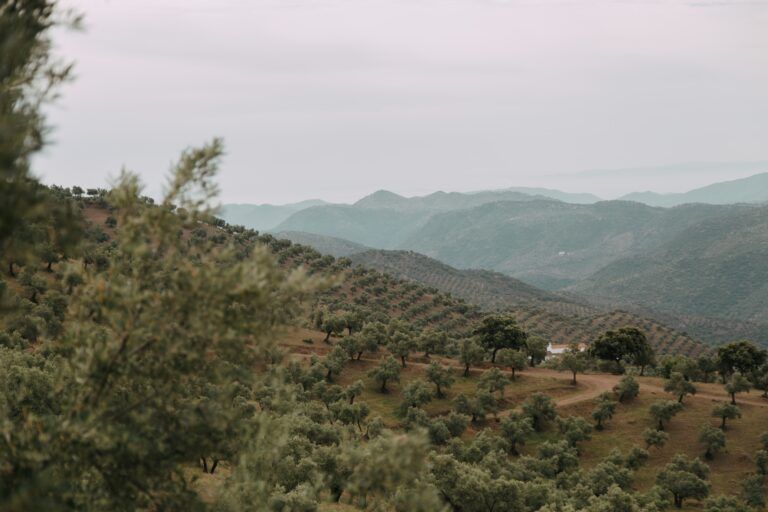(San Francisco, February 8, 2024) – The Biden administration should act on a call by U.S. Senators to work with the Mexican government to prevent avocados grown on illegally deforested lands from reaching U.S. markets, Climate Rights International said today.
In a February 7, 2024 letter to U.S. Secretary of State Antony Blinken, U.S. Secretary of Agriculture Thomas Vilsack, and the U.S. Trade Representative Katherine Tai, Senator Peter Welch and five of his Senate colleagues expressed concern over the “devastating toll of the U.S.-Mexico avocado trade,” citing a Climate Rights International report and a related New York Times article that document widespread illegal deforestation and unsustainable water use linked to avocado production, and how Indigenous leaders and other local residents seeking to defend the forests are being threatened, attacked, and killed.
“The environmental destruction and abuse fueled by Mexican avocado exports to the United States require urgent attention by both countries,” said Brad Adams, executive director of Climate Rights International. “Denying export authorization to avocado orchards installed on recently deforested lands would dramatically reduce the economic incentive to clear the forests or attack the people defending them.”
The 250-page report by Climate Rights International, released in November 2023, documents how forests are being illegally cleared in Michoacán and Jalisco states to produce avocados that are sold in supermarkets throughout the United States.
In its 2024 business plan, the Hass Avocado Board, a U.S. government entity whose mission is to increase U.S. market demand for domestic and imported avocados, emphasizes the need to communicate its “sustainability story” to consumers and build “trust” in how avocados are good for the environment. Yet it does not mention deforestation and fails to put forth substantive proposals to reduce the industry’s heavy environmental impact.
Despite the risks, many people in Michoacán and Jalisco continue to document, denounce and resist the destruction, including Indigenous leaders, environmentalists, journalists, and academics. But their efforts are no match for the profits to be made selling avocados to corporations that export the fruit. Mexico supplies four out of five avocados eaten in the United States, in exports worth US$3 billion per year. The U.S. market—which has tripled in size since 2000—is the main factor motivating avocado producers to destroy forests to establish orchards.
Under an existing Operational Work Plan (OWP) between the U.S. and Mexican governments, all avocado orchards that export to the United States must be certified by U.S. and Mexican authorities—but only for pest-control. In the letter, the Senators recommend the administration expand the OWP to preclude certification for orchards on land that has recently been illegally deforested, noting that senior Mexican officials have already expressed interest in making this change.
“Both governments already maintain GPS maps of every single avocado orchard that is certified for U.S. export,” said Adams. “They could do what we did, which is compare those maps with time-sequenced satellite imagery to determine whether an orchard was established on recently deforested land and, if it was, block its certification for export. Corporations have access to the same GPS maps and should also use them to identify recently deforested orchards and refuse to buy avocados from them.” Since there are many Mexican avocado orchards that are not on recently deforested lands, the policy could be implemented “without significantly reducing American consumers’ access to avocados or harming the livelihood of law-abiding avocado farmers,” the letter observes.
The letter cites the U.S. and Mexico’s shared commitment under the Paris Agreement to reduce deforestation, as well as their pledge under the Glasgow Leaders Declaration on Forests and Land Use to pursue trade policies that promote sustainable commodity production and consumption.
The Senators also requested the Administration provide them with a briefing on the matter within 45 days to “better understand the steps the Administration is taking, and could take in the future” to prevent the import of avocados linked to deforestation, unsustainable water use, and violence against Indigenous and other local communities.
In addition to Senator Welch, Senator Benjamin Cardin, Senator Tim Kaine, Senator Martin Heinrich, Senator Chris Van Hollen, and Senator Jeff Merkley signed the letter.
“The Biden administration has committed to ending deforestation from agricultural commodities,” said Adams. “Prompt action on the Senate proposal is crucial towards fulfilling that commitment.”
Photo credit: Image by wirestock on Freepik. Freepik license.







